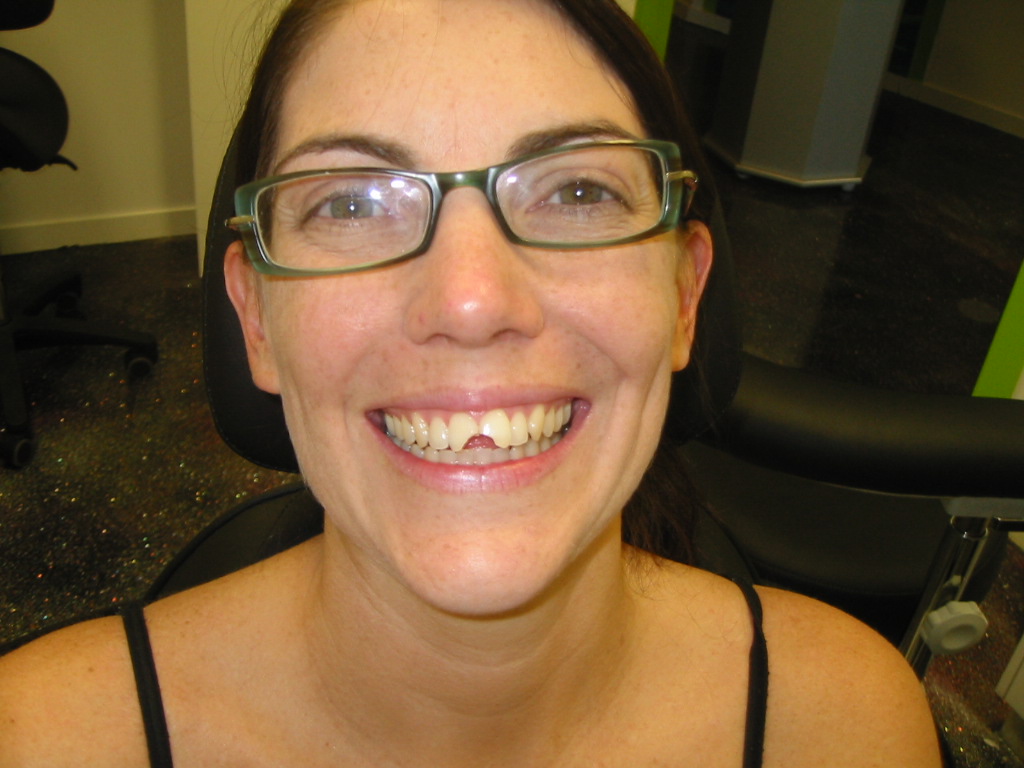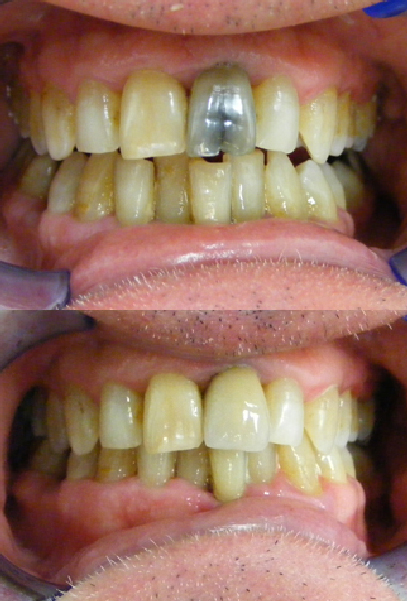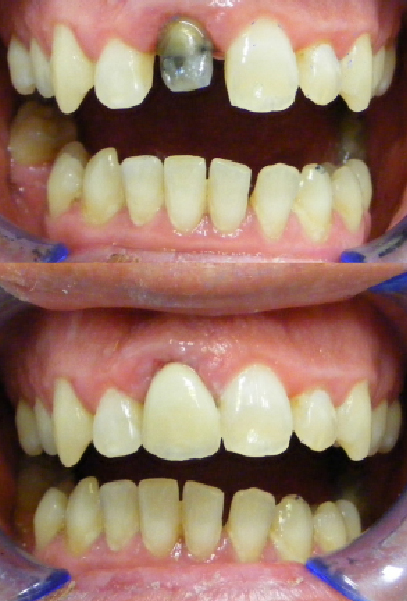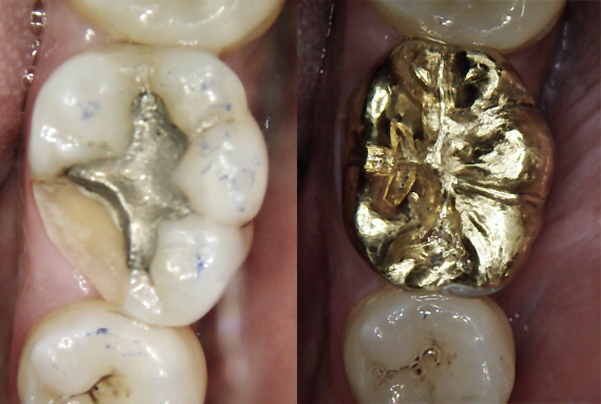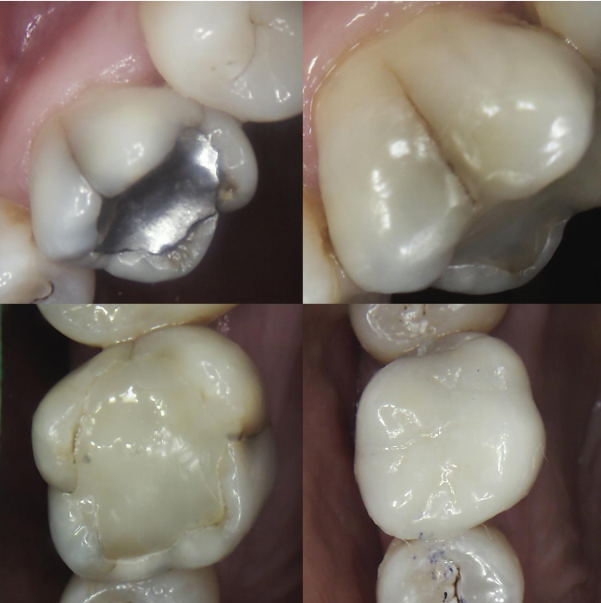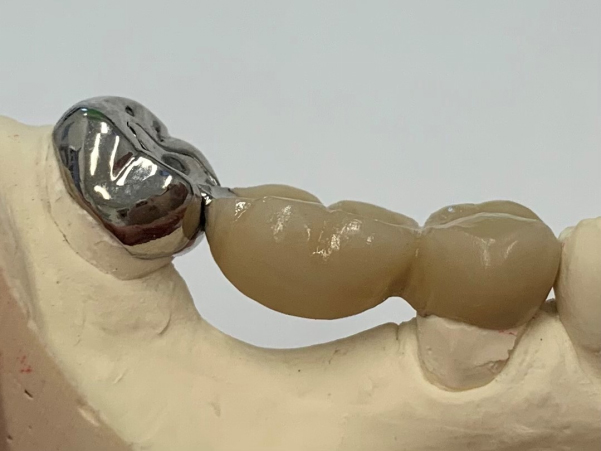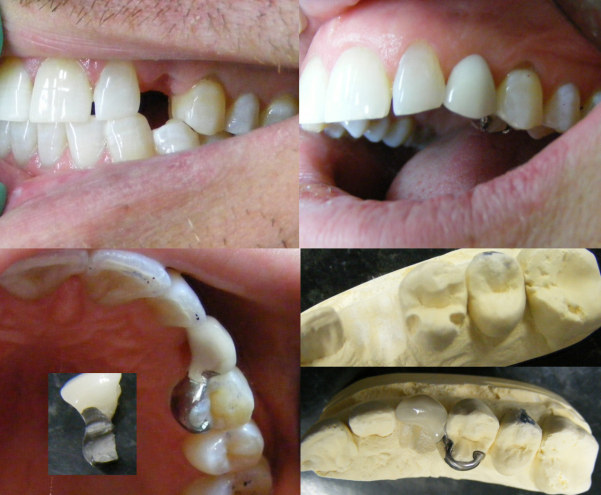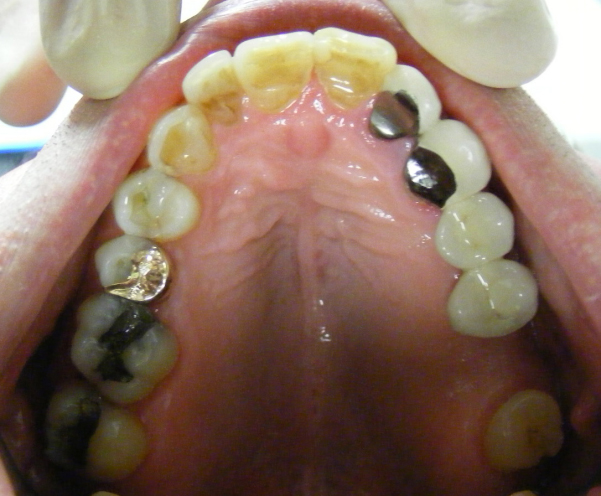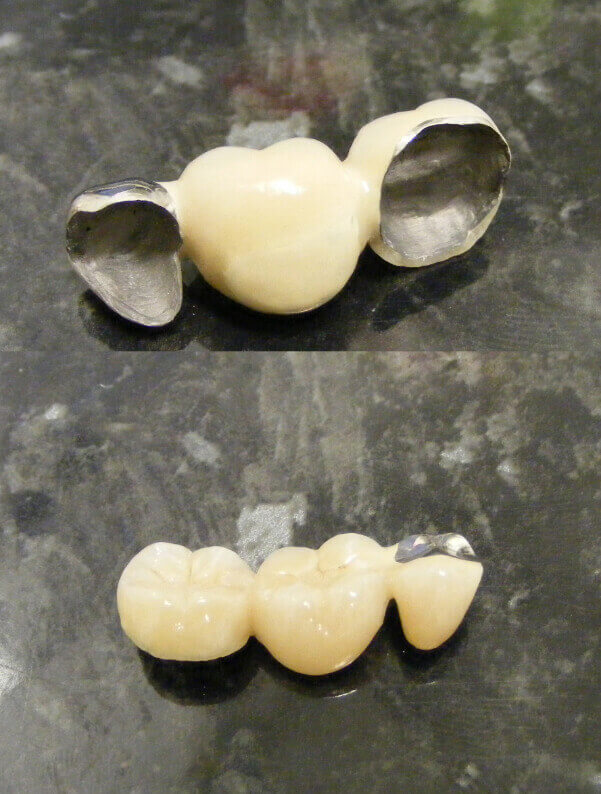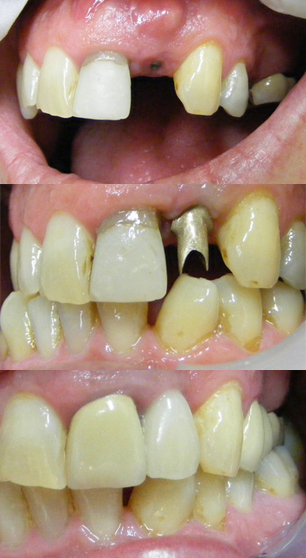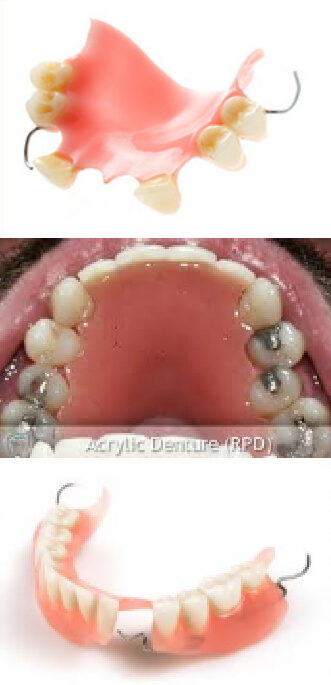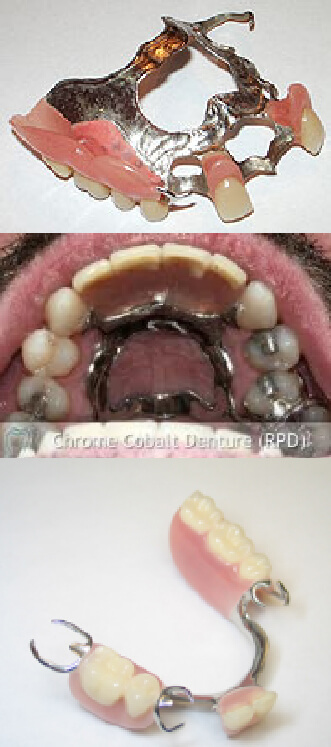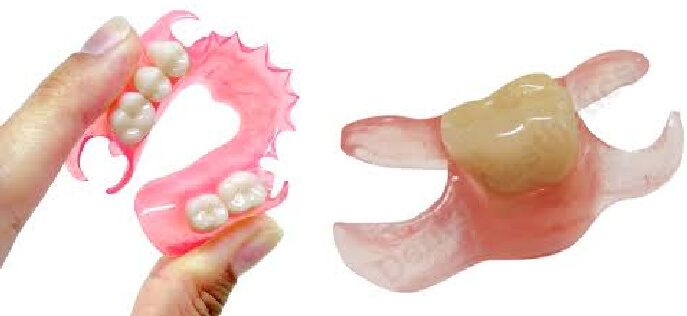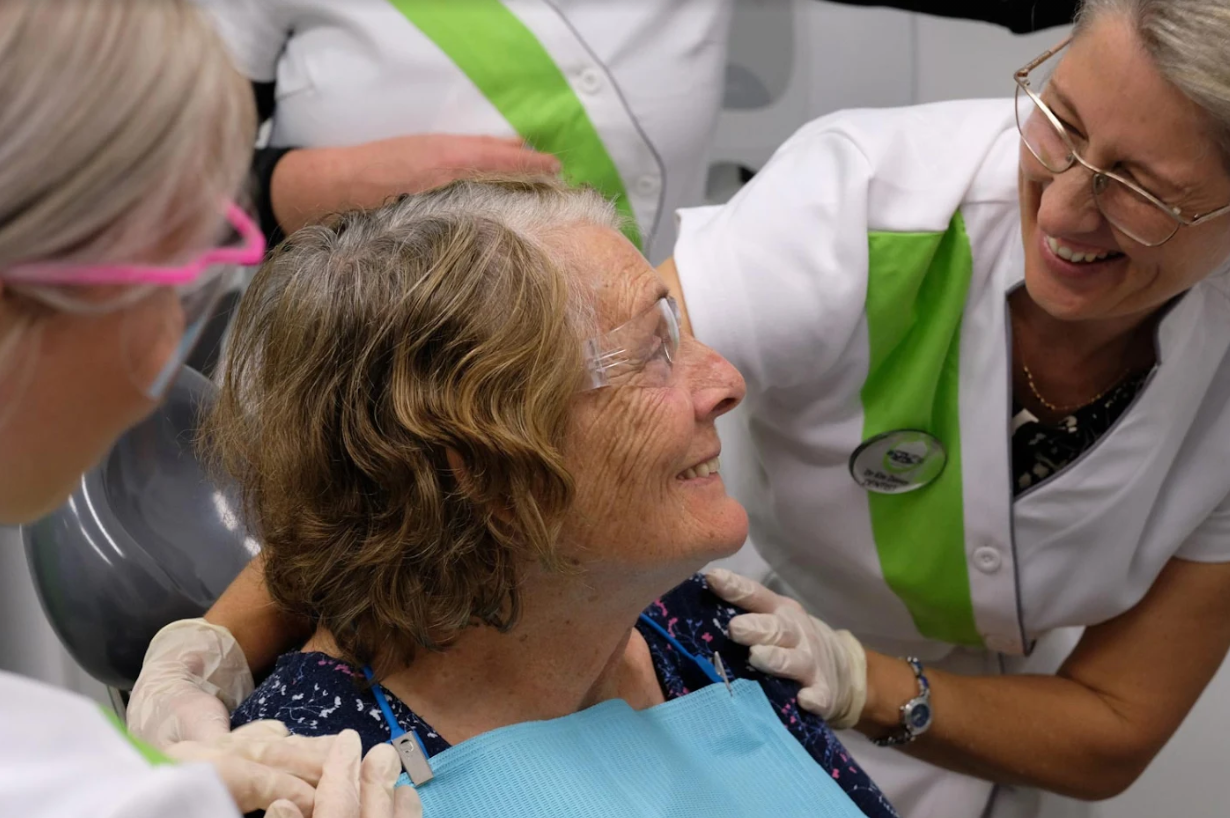If small enough, the rough area can be smoothed over with a polishing drill and left as is. The dentist will need to know why the tooth chipped to prevent it happening again. Some common reasons are trauma (knocked it), bit hard on something, weakened enamel from acid erosion (such as acid reflux, frequent softdrink or lemon consumption), weakened teeth from previous dental fillings, or dental decay.
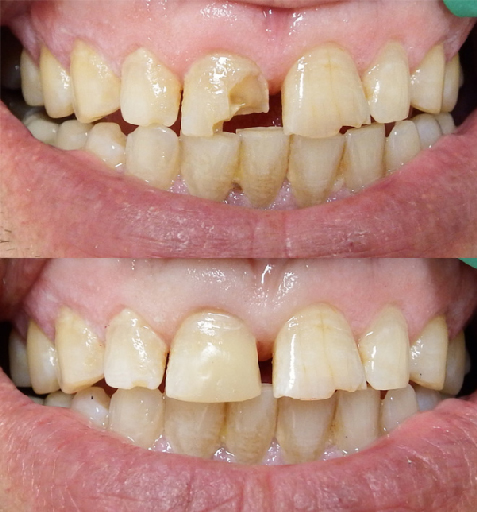
Front teeth can be filled with white composite resin, as an immediate fix. Front teeth are the first contact with food, and are under a lot of strain everyday. Enamel is very strong, however once a piece has broken, the replacement material – white composite resin – is nowhere near as strong. It is advised not to bite hard on composite resin, as repeated breakages can occur. Stronger materials like Porcelain or Zirconia provide excellent aesthetics and longevity. Cosmetic porcelain veneers are ideal for small breaks. Ceramic crowns (below) are the strongest of all dental restorations.
When the tooth sends out pain signals, it is letting you know the problem is serious. Aim to visit a dentist ASAP to get the pain under control. Early attention can result in the dentist filling the tooth. Sometimes the dentist will use medicine under the filling to disinfect the tooth first. However sometimes the tooth is too far gone. With a toothache or swelling, instead of a filling the dentist may advise to have root canal treatment, or have the tooth removed.
Using dental floss, minimizing sugar and removing anything stuck in the hole can delay the pain until the dentist can see you. Book now online Ballina or Goonellabah.
The stresses on molar teeth are even higher than front teeth. When a breakage needs repairing, we have a choice of materials to fix the hole.
-
-
White materials placed directly into the hole. Composite resin is a standard filling material, however it does have limitations. It is not as strong as the enamel so it can break or weardown over time. A major concern is leakage under the fillings. Regular monitoring with Xrays will help monitor this risk. Daily flossing will reduce this risk considerably.
-
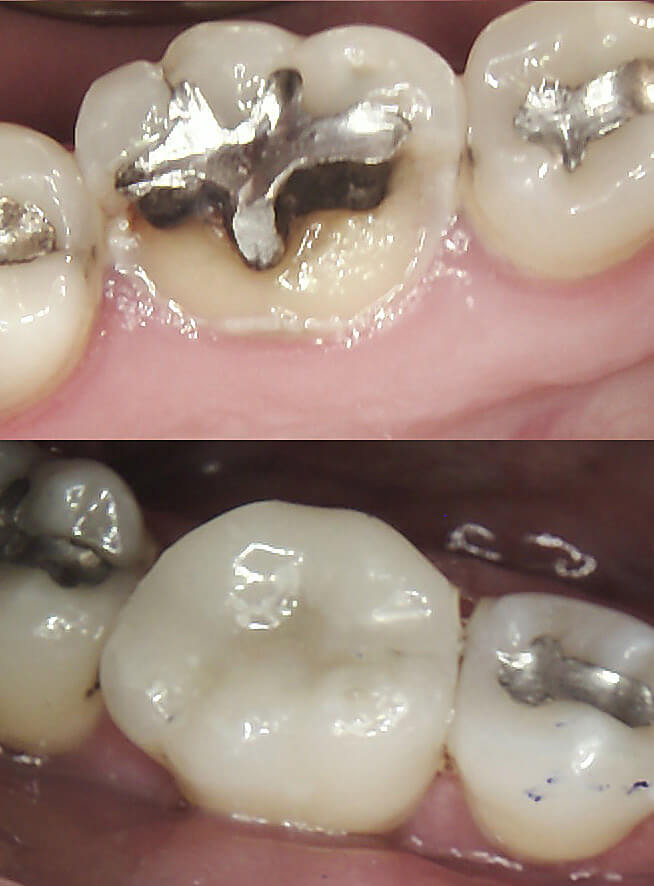
-
Metal amalgam placed directly into the hole. This very strong metal filling does not wear or break or leak as much as composite resin. However it has fallen out of fashion due to its grey appearance. Many people still have old amalgams in their teeth, which is testament to their enduring nature. Some amalgam blends have undesirable properties like swelling with time, causing cusps to fracture.
As both these materials have problems, dentist may recommend some more long term restorative options. Cast crown restorations are stronger and often outperform standard fillings. They require more production time, and consequently cost more than a filling. However the extra expense pays off long term with teeth lasting for years, instead of repeated refilling.

